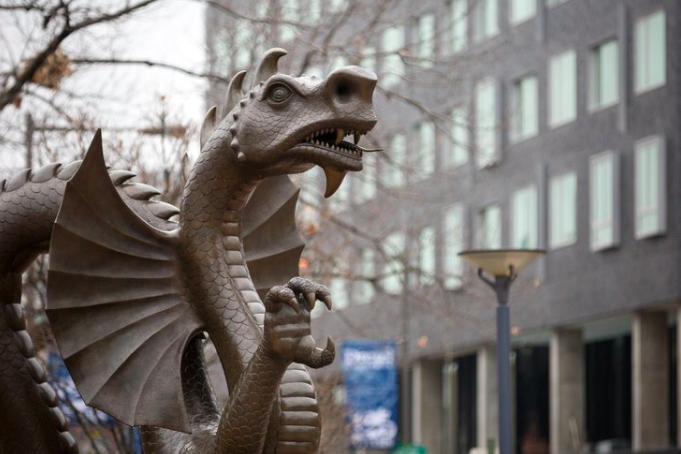
May 21, 2024
 Thom Carroll/for PhillyVoice
Thom Carroll/for PhillyVoice
Drexel University began resuming in-person activities Tuesday following the formation of a pro-Palestinian encampment. President John Fry has called on the demonstration to disband.
Drexel University is beginning a "phased return" to normal operations on Tuesday. It comes after the school initiated a lockdown and switched to remote learning in response to the pro-Palestinian encampment on campus.
"(On Tuesday), labs, studio classes and simulation classes will return to being in-person, while lecture classes will remain virtual," Drexel President John Fry said Monday in a message to students and employees. "Students should confirm with their faculty member if they have any questions."
Fry also called for the pro-Palestinian encampment, established Saturday in the university's Korman Quad area, to disband. His message to Drexel staff and students said the encampment has "proved extensively disruptive" to the school's normal operations.
"This encampment cannot be allowed to remain in place," Fry wrote. "I call on protesters to disband the encampment on their own immediately. In any event it is paramount that the encampment is removed so that every member of our community is free to move safely across the campus without threat of intimidation or harassment."
Fry said the encampment has been "reportedly peaceful and respectful of passersby for long stretches of time," but he also claimed protesters have created a "hostile, confrontational environment" in which passersby have been subjected to antisemitic speech. Fry said protesters have made demands of Jewish student organizations and faculty and staffers.
He said the encampment has but has led to the cancellation of multiple campus events and added "strain" to Drexel police.
In statements to the press, organizers of the encampment have disputed allegations of disruptions and antisemitism. The group Drexel Faculty and Staff for Justice in Palestine said "using this term (antisemitism) to justify punitive action against our students is disrespectful to Jewish people."
The organization also denied that the protesters disrupted campus operations or classroom activities.
"What is highly disruptive to university operations is the closing of campus buildings and facilities, causing many faculty and staff members to rush to create remote teaching plans, and cutting off access to necessary resources for students," the organization wrote.
The Drexel Palestine Coalition disputed Fry's claims that university administrators have "opened a line of communication" to the protesters. "We are disappointed in President Fry's unwillingness to negotiate in good faith in order to meet the encampment demands," the organization said in a press release.
The protesters are demanding Drexel divest from companies involved with Israel and the ongoing war in Gaza, support its Palestinian, Arab and Muslim students, and declare the attacks on Gaza as genocide.
In ending his message to the Drexel community, Fry acknowledged the range of emotional reactions caused by the situation. "Some have registered their strong support for the protestors and condemned the University's response as heavy-handed," Fry wrote. "Others are upset with us for not removing the encampment right away."